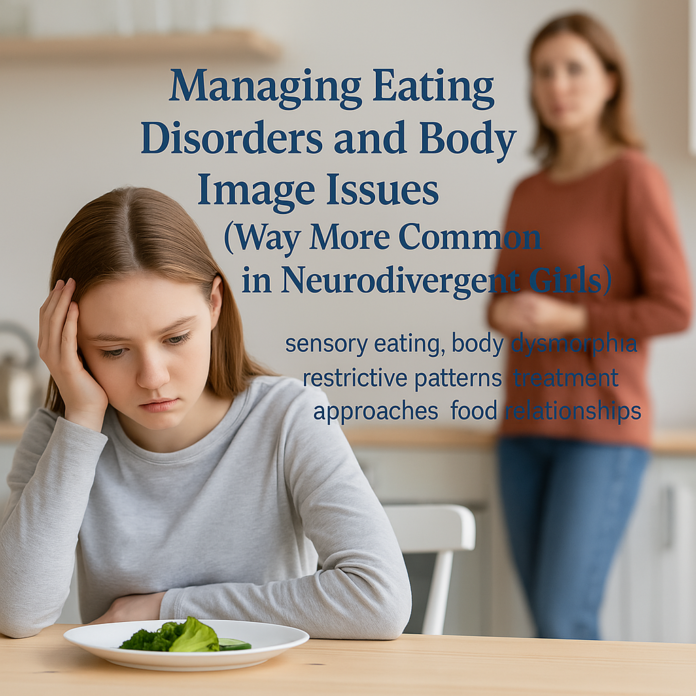Eating disorders and body image challenges are significantly more common in neurodivergent girls, especially those with autism. Sensory sensitivities, rigid routines, and internalized social pressures can all contribute to disordered eating patterns. Understanding the unique causes and tailoring treatment approaches is key to supporting healthy food relationships and body acceptance.
Understanding the Root Causes For autistic girls, eating disorders often stem from:
- Sensory aversions to textures, smells, or temperatures
- Rigid thinking patterns around food types or routines
- Social pressure and comparison
- A desire for control in overwhelming environments
These factors can lead to restrictive eating or harmful dieting behaviors.
Sensory Eating and Food Avoidance Many neurodivergent individuals experience heightened sensory sensitivities, which may result in:
- Preference for bland, familiar, or soft foods
- Avoidance of strong flavors or mixed textures
- Anxiety during mealtimes or around unfamiliar foods
This can sometimes be mistaken for “picky eating” but may be part of a deeper sensory or emotional issue.
Body Dysmorphia and Identity Struggles Body image issues can be amplified by:
- Difficulty processing body changes during puberty
- Obsessive comparison with societal beauty standards
- Misunderstood gender identity or body perception
This can fuel body dysmorphia and unhealthy behaviors to control appearance.
Treatment Approaches That Work Support must be neurodivergent-informed. Helpful strategies include:
- Working with therapists experienced in both autism and eating disorders
- Using gentle, non-pressuring exposure to new foods
- Addressing underlying anxiety and control issues
- Promoting body neutrality and self-compassion
Building a Positive Relationship with Food Creating a safe and supportive eating environment is essential:
- Encourage flexible routines and gradual food variety
- Validate sensory preferences while supporting nutritional needs
- Focus on connection and comfort at mealtimes, not control
Final Thoughts Eating disorders in neurodivergent girls are often overlooked or misunderstood. By recognizing sensory and emotional factors, embracing neurodiversity-informed care, and promoting body acceptance, we can help build healthier food relationships and self-worth.
